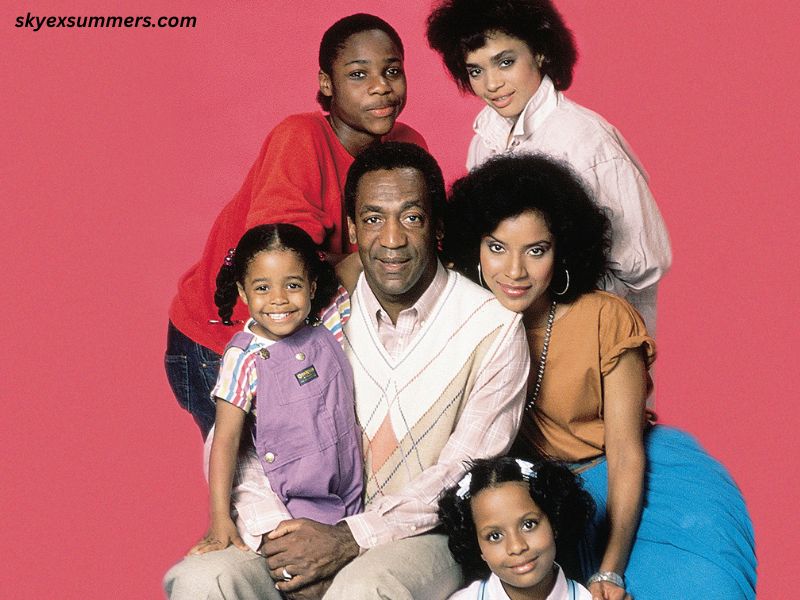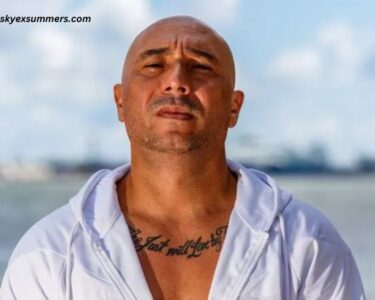The Cosby (TV Series) is an iconic sitcom that graced American television from September 16, 1996, to April 28, 2000. Created by David Renwick and developed for American audiences by Bill Cosby and Dennis Klein, the show was a reimagining of the British sitcom One Foot in the Grave. Featuring a stellar cast, sharp writing, and relatable themes, Cosby (TV Series) stands out as a unique addition to 1990s television. This article explores the show’s origins, characters, themes, critical reception, and legacy.
Origins and Background
The inspiration for Cosby (TV Series) came from One Foot in the Grave, a British sitcom created by David Renwick. Bill Cosby, already a legendary figure in television due to The Cosby Show, sought to adapt the series to American sensibilities. CBS, recognizing the potential of pairing Cosby’s comedic genius with the well-received British format, greenlit the project.
The series marked Bill Cosby’s return to television after the conclusion of The Cosby Show in 1992. While his previous sitcom focused on the challenges and joys of raising a family, Cosby (TV Series) delved into the life of a retiree navigating a new phase of life.
Plot and Setting
The story revolves around Hilton Lucas (played by Bill Cosby), a man forced into early retirement after his job downsizes. The show portrays Hilton’s attempts to find purpose and fulfillment in his post-retirement life. Set in a cozy New York neighborhood, the sitcom’s episodes highlight Hilton’s day-to-day interactions with his family, friends, and neighbors.
Hilton’s relationship with his wife, Ruth Lucas (played by Phylicia Rashad), serves as the emotional core of the show. Ruth is a supportive yet assertive partner who often balances Hilton’s antics with her pragmatism. The dynamic between Hilton and Ruth echoes the chemistry between Cosby and Rashad from their days on The Cosby Show, making it a highlight for fans.
Main Characters
- Hilton Lucas (Bill Cosby): The protagonist of the series, Hilton is a former airline worker adjusting to retired life. His comedic misadventures and occasional stubbornness provide much of the show’s humor and heart.
- Ruth Lucas (Phylicia Rashad): Ruth is Hilton’s loving and level-headed wife. As a high school teacher, she brings a steadying influence to the Lucas household.
- Erica Lucas (T’Keyah Crystal Keymah): Hilton and Ruth’s daughter, Erica, frequently visits her parents. Her modern outlook often contrasts with Hilton’s traditional views, creating humorous generational conflicts.
- Griffin Vesey (Doug E. Doug): Griffin is Hilton’s eccentric neighbor and best friend. His quirky personality and penchant for outlandish schemes make him a constant source of amusement.
- Pauline Fox (Madelon Thomas): Pauline is Ruth’s sister and a recurring character who brings her unique perspectives and comedic moments to the series.
Themes and Humor
Cosby (TV Series) tackles a variety of themes, ranging from the challenges of retirement to the dynamics of family life. The show’s humor is often situational, relying on Hilton’s missteps and misunderstandings. Some of the recurring themes include:
- Retirement Adjustments: Hilton’s journey reflects the struggles many retirees face, such as redefining one’s purpose and dealing with the loss of a structured routine.
- Family Dynamics: The interplay between Hilton, Ruth, and Erica showcases the humor and tension inherent in family relationships.
- Friendship: The bond between Hilton and Griffin provides many of the show’s lighter moments, illustrating the importance of camaraderie.
- Generational Clashes: Hilton’s traditional values often clash with Erica’s modern perspective, leading to comedic situations and heartfelt lessons.
Reception and Legacy
When Cosby (TV Series) premiered, it drew mixed reviews from critics but enjoyed steady ratings during its run. Viewers appreciated the chemistry between Bill Cosby and Phylicia Rashad, as well as the relatable themes explored in the episodes.
However, the show faced challenges in distinguishing itself from The Cosby Show. While the latter had a broader family focus, Cosby (TV Series) honed in on Hilton’s personal journey. Some critics felt the humor lacked the groundbreaking appeal of Cosby’s earlier work, but others praised the sitcom for addressing underrepresented topics like retirement and aging.
The series ran for four seasons, culminating in 96 episodes. Its steady viewership and loyal fan base solidified its place in the late 1990s television landscape.
Awards and Achievements
During its run, Cosby (TV Series) garnered recognition for its cast and writing. Bill Cosby received several award nominations for his performance, showcasing his enduring appeal as a television star. Phylicia Rashad also earned praise for her portrayal of Ruth, with critics commending her ability to bring depth and warmth to the character.
Cultural Impact
While not as revolutionary as The Cosby Show, Cosby (TV Series) contributed to television’s portrayal of older characters. The sitcom offered a comedic yet heartfelt exploration of retirement, a topic seldom addressed in mainstream media at the time. By centering on a retired protagonist, the show resonated with older viewers and provided representation for an often-overlooked demographic.
Additionally, the series reaffirmed Bill Cosby’s status as a cultural icon in the 1990s. His ability to anchor another successful sitcom demonstrated his versatility and enduring appeal.
Notable Episodes
Several episodes of Cosby (TV Series) stand out for their humor and poignancy:
- “Pilot” (Season 1, Episode 1): The series opener introduces Hilton Lucas and sets the stage for his retirement journey.
- “The Two Mrs. Lucases” (Season 2, Episode 7): A humorous exploration of Hilton’s jealousy when Ruth reconnects with an old friend.
- “Lucas Apocalypse” (Season 3, Episode 12): Hilton and Griffin’s attempt to prepare for a supposed disaster leads to chaos.
- “A Wife’s Prerogative” (Season 4, Episode 9): Ruth asserts her independence, highlighting the dynamics of a long-term marriage.
Challenges Behind the Scenes
Like many shows, Cosby (TV Series) faced its share of challenges. Balancing the expectations of fans who adored The Cosby Show with the need to create a distinct identity proved difficult. Additionally, the changing television landscape of the late 1990s, with the rise of edgier sitcoms, posed competition.
Despite these hurdles, the show’s creators and cast maintained their commitment to delivering quality entertainment. Their efforts ensured that Cosby (TV Series) remained a beloved part of many viewers’ weekly routines.
Streaming and Modern-Day Availability
In today’s era of streaming, classic sitcoms like Cosby (TV Series) have found new audiences. Platforms offering reruns or on-demand viewing have introduced the show to younger generations, ensuring its legacy endures. Fans often seek out the series to relive Hilton’s comedic escapades or discover the charm of the Lucas family for the first time.
Conclusion
Cosby (TV Series) may not have reached the cultural zenith of The Cosby Show, but it remains an important chapter in television history. By exploring themes of retirement, family, and friendship with humor and heart, the series offered a fresh perspective on life’s later stages. The chemistry between Bill Cosby and Phylicia Rashad, coupled with the contributions of a talented supporting cast, ensured that the show resonated with viewers.
For fans of sitcoms that blend laughter with life lessons, Cosby (TV Series) remains a worthy addition to any watchlist. Its exploration of universal themes, delivered through the lens of one man’s post-retirement journey, ensures its place as a beloved classic in the world of television.



